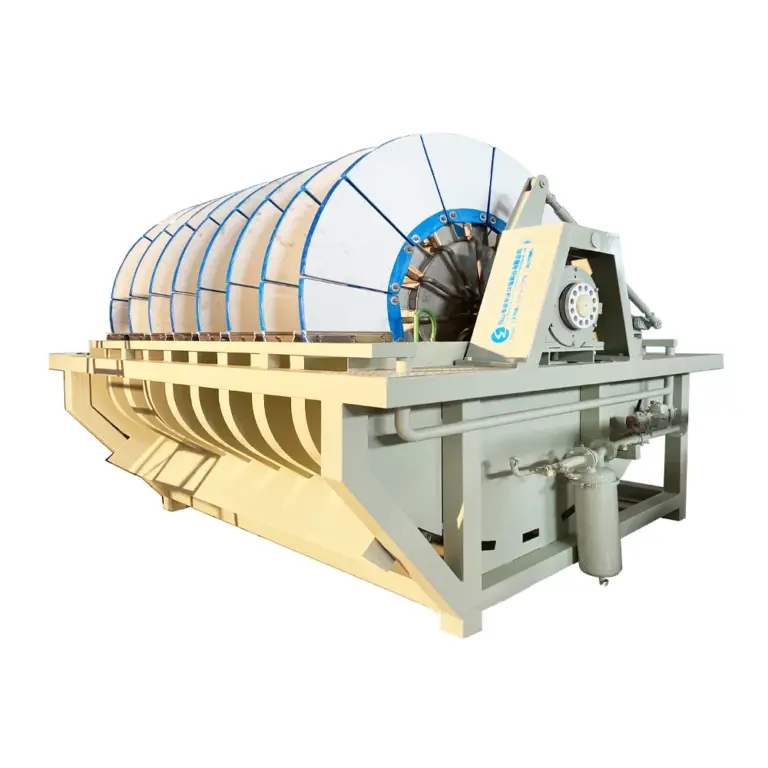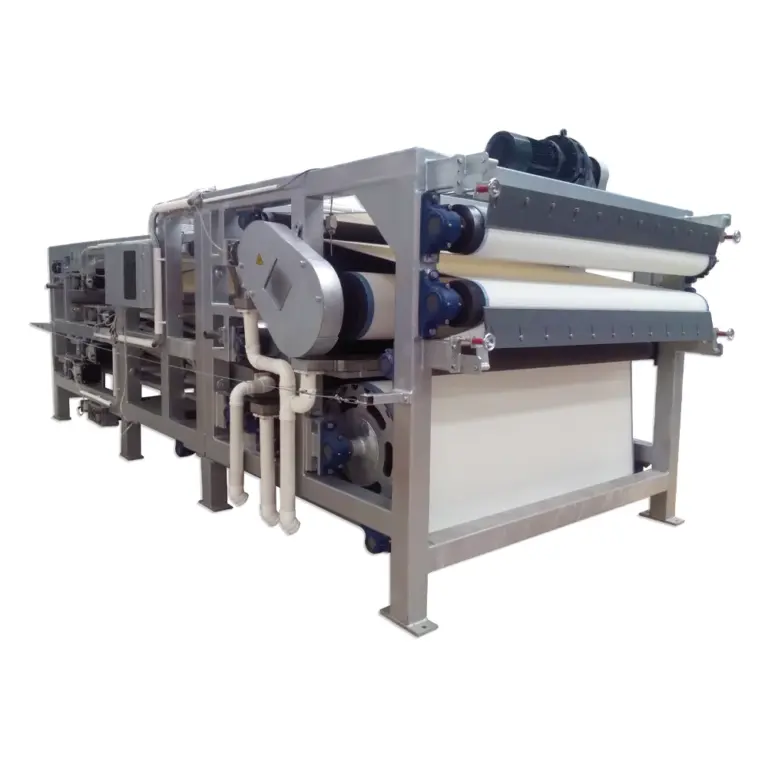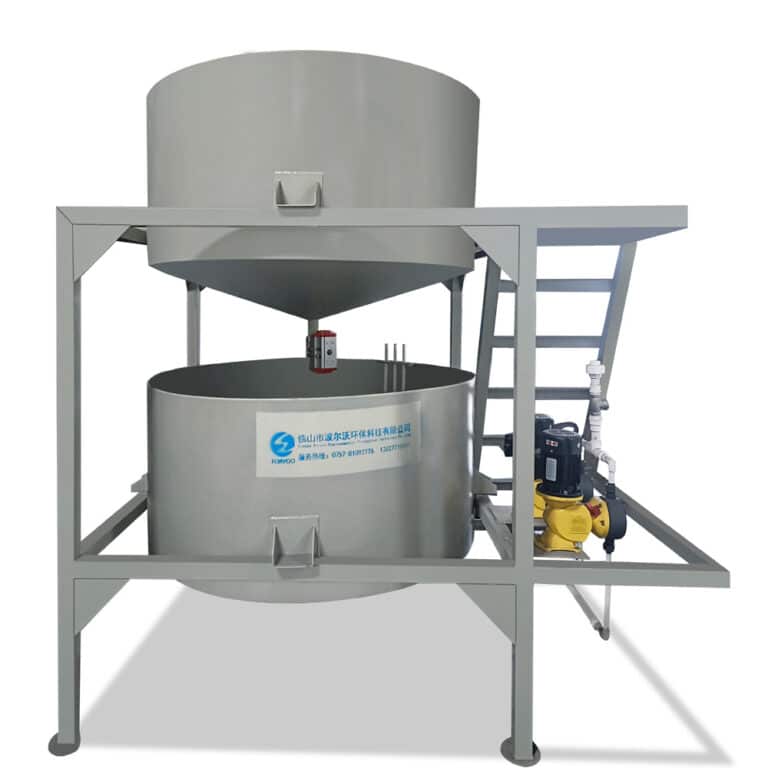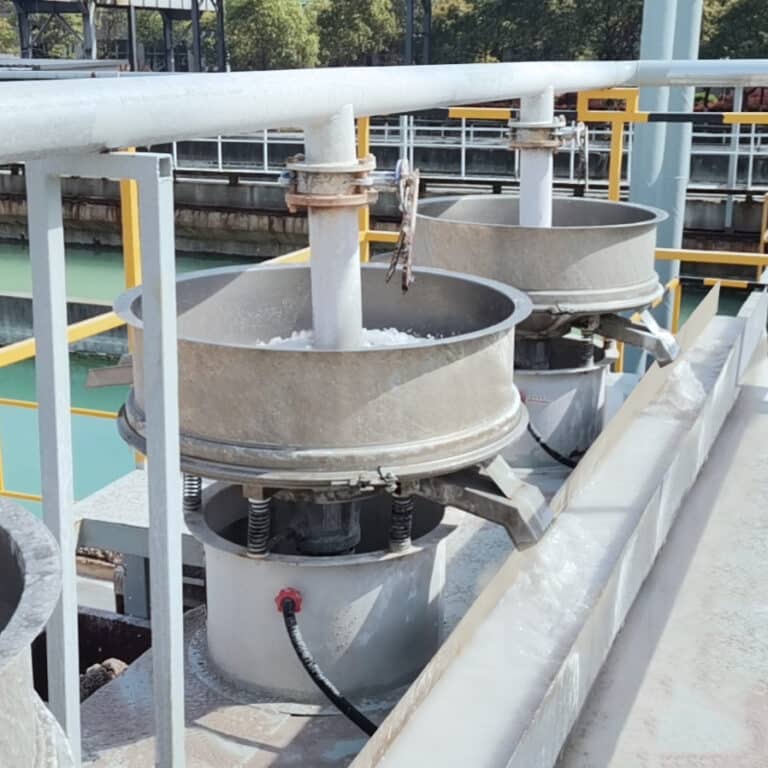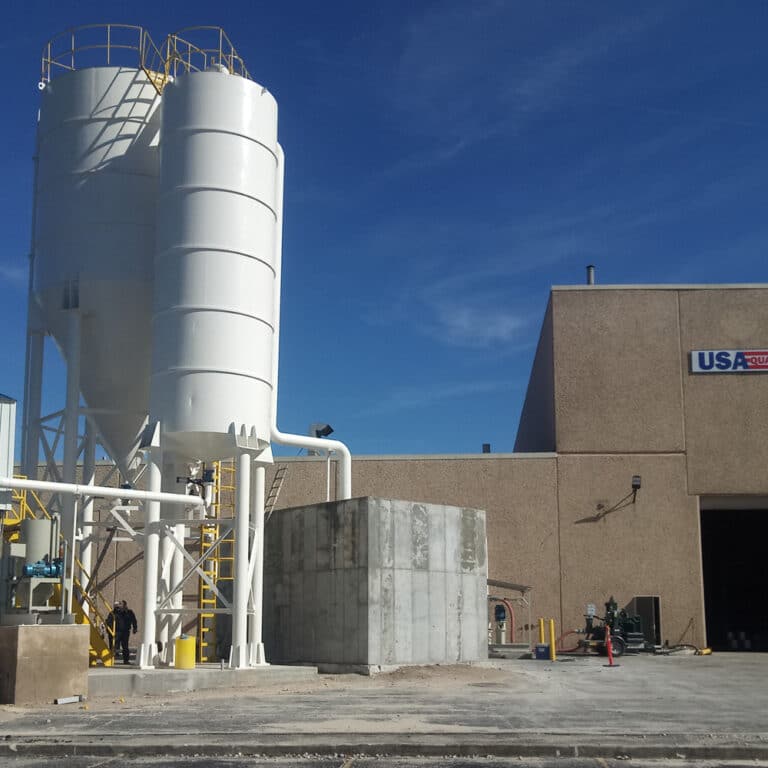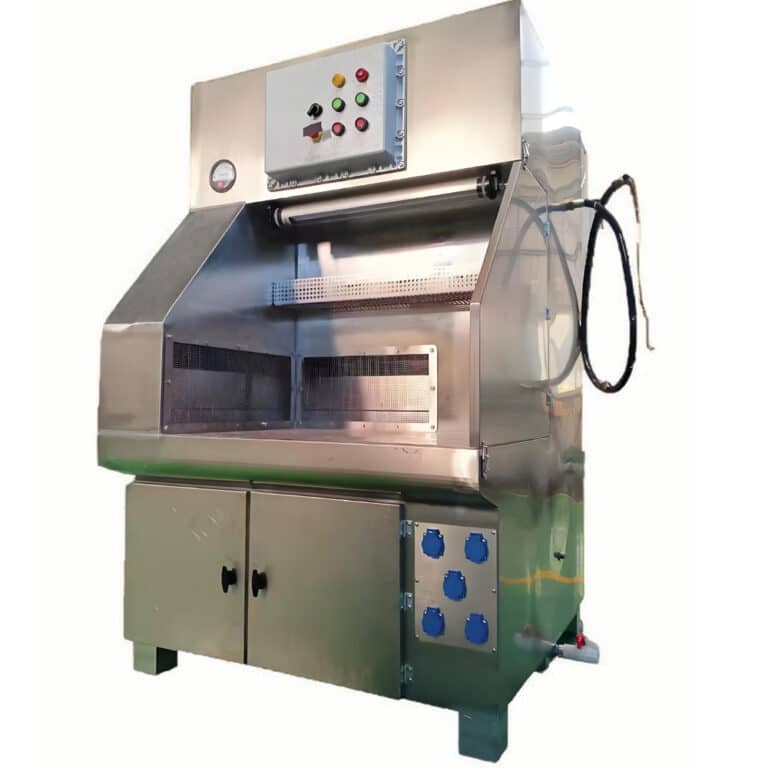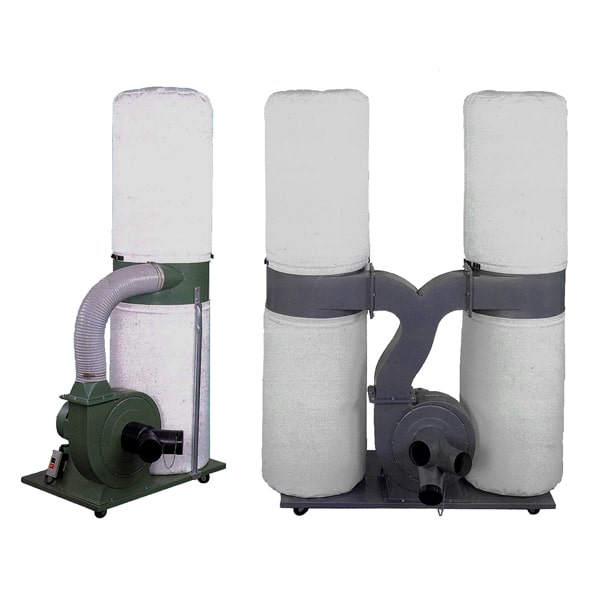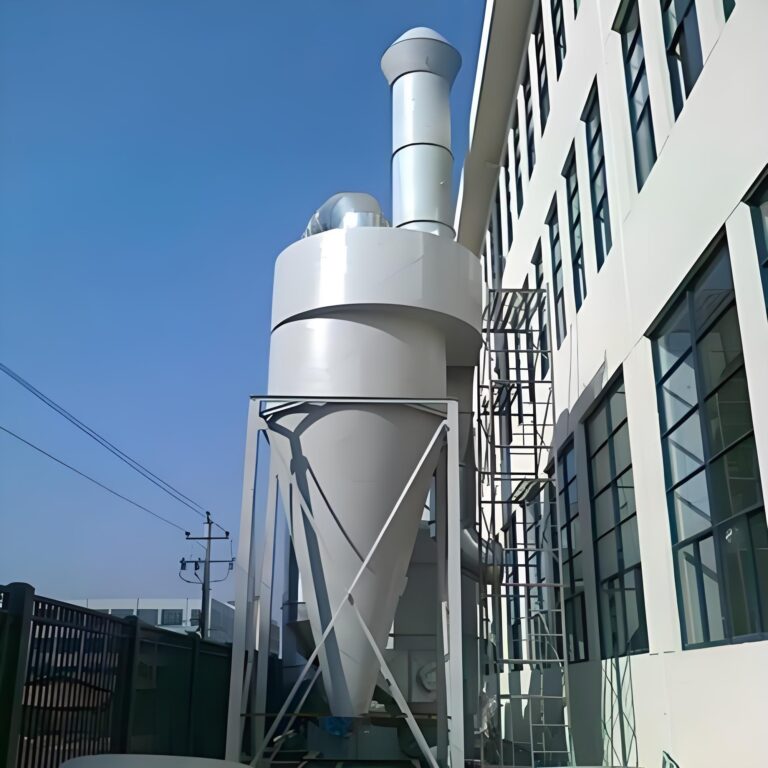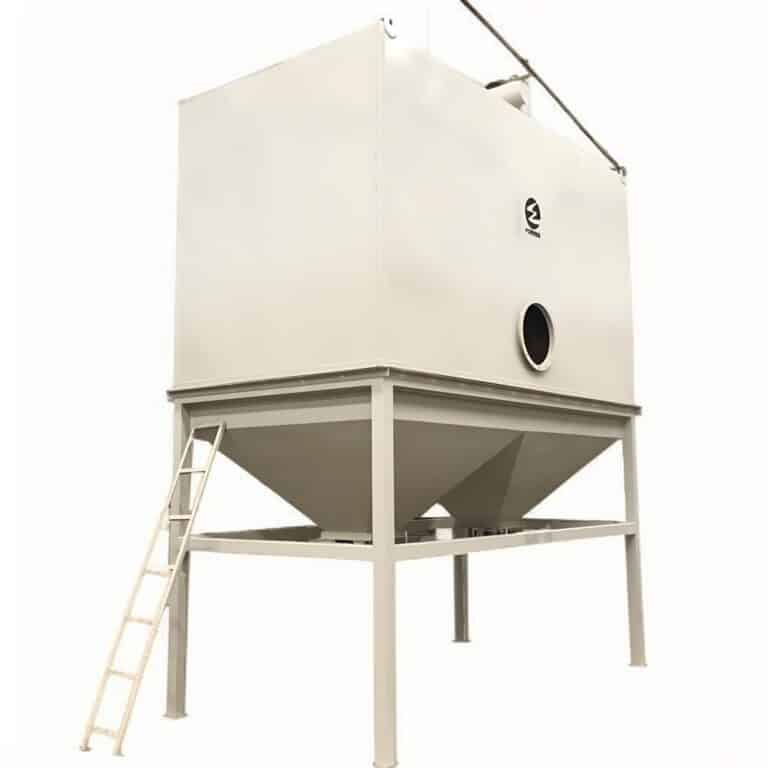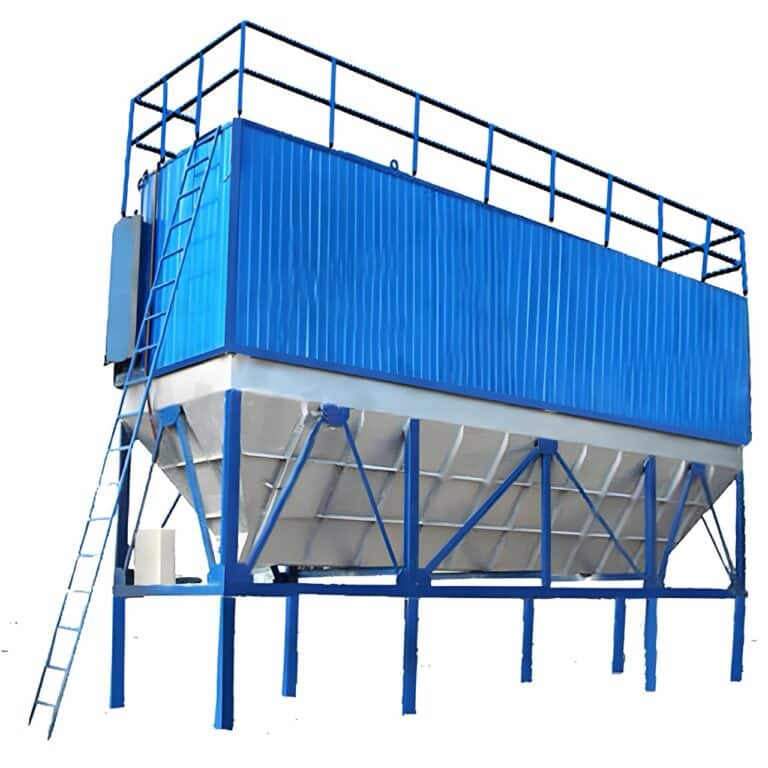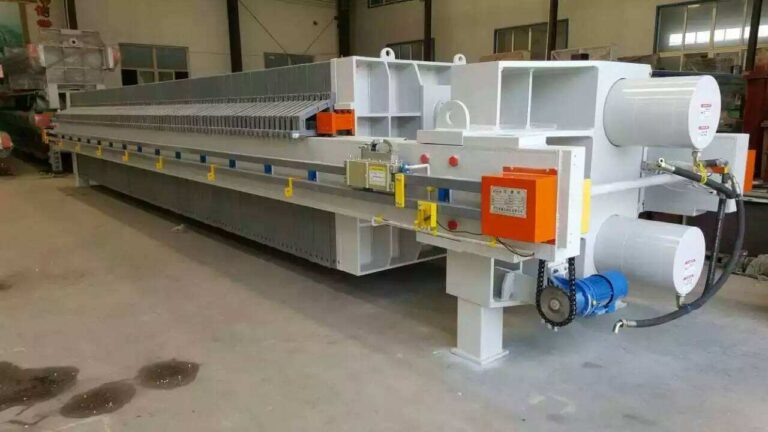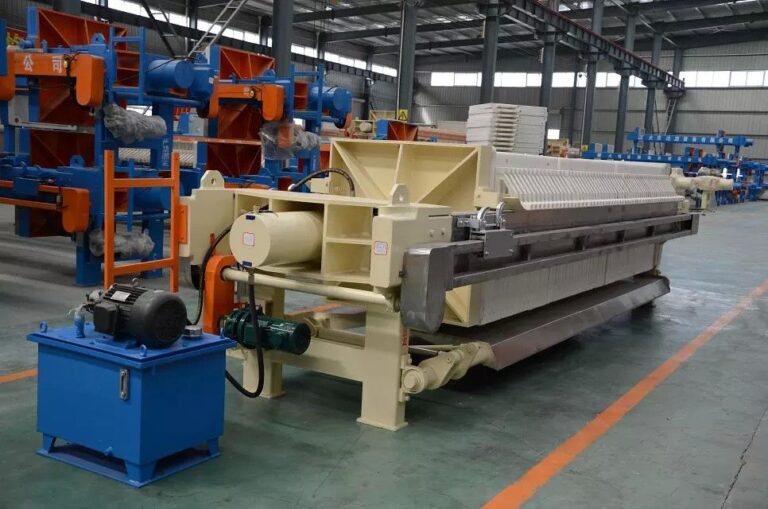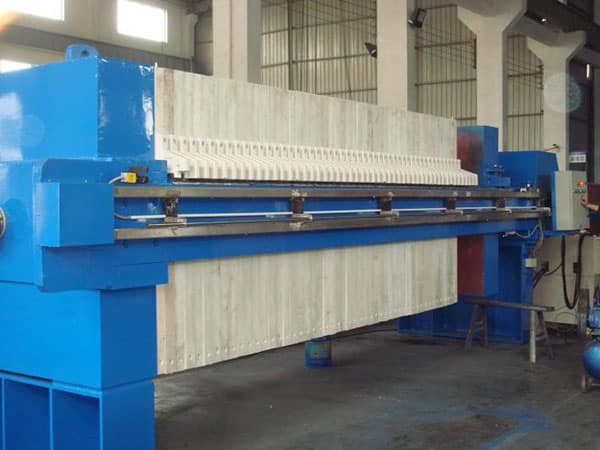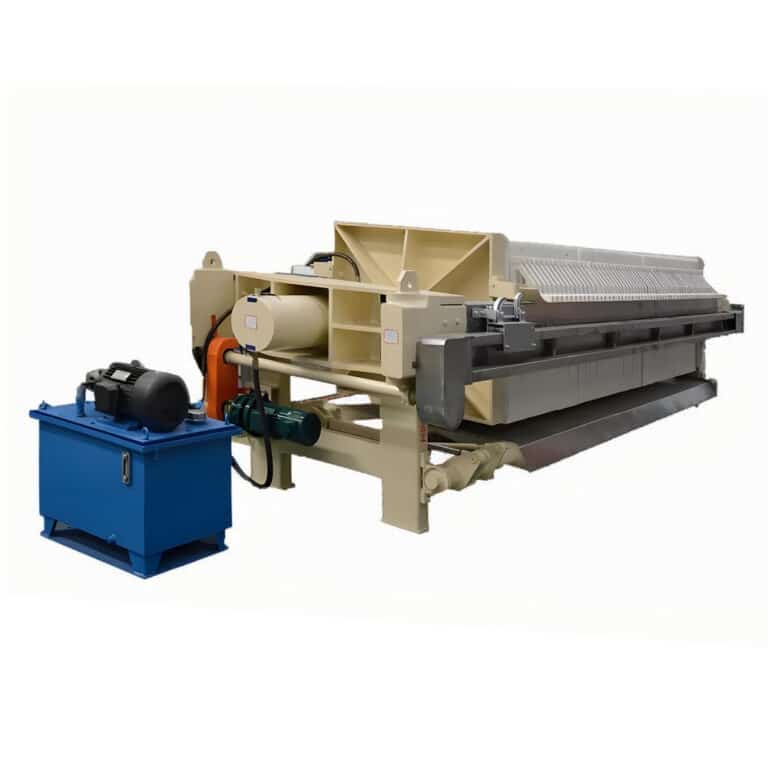Filtrele-presă cu membrană de calitate alimentară au revoluționat industria alimentară și a băuturilor, oferind siguranță și eficiență de neegalat în procesele de filtrare. Aceste sisteme avansate utilizează membrane semipermeabile pentru a separa solidele de lichide, asigurând produse de cea mai înaltă calitate și minimizând deșeurile. Pe măsură ce cererea de alimente și băuturi mai curate și mai pure continuă să crească, filtrele-presă cu membrană au devenit un instrument indispensabil pentru producătorii care doresc să îndeplinească standarde de calitate stricte și să își îmbunătățească procesele de producție.
În acest articol cuprinzător, vom explora complexitatea filtrelor-presă cu membrană de calitate alimentară, aplicațiile acestora în industria alimentară și a băuturilor și numeroasele beneficii pe care le oferă. De la îmbunătățirea calității produselor la creșterea eficienței operaționale, vom aprofunda motivele pentru care aceste sisteme inovatoare de filtrare au devenit o piatră de temelie a producției moderne de alimente și băuturi.
Pe măsură ce parcurgem diferitele aspecte ale preselor filtrante cu membrană, vom examina designul, funcționalitatea și factorii cheie care le fac ideale pentru aplicațiile din industria alimentară și a băuturilor. De asemenea, vom discuta cele mai recente progrese în tehnologia membranelor și modul în care acestea modelează viitorul filtrării în industrie.
"Presele filtrante cu membrană de calitate alimentară sunt esențiale pentru asigurarea siguranței și calității produselor în industria alimentară și a băuturilor. Acestea oferă o eficiență superioară de filtrare, reduc deșeurile și îmbunătățesc procesele generale de producție."
Cum funcționează presele filtrante cu membrană în aplicațiile pentru alimente și băuturi?
Filtrele-presă cu membrană funcționează pe baza unui principiu simplu, dar eficient: utilizarea presiunii pentru a forța lichidul să treacă printr-o membrană semipermeabilă, reținând în același timp substanțele solide. În aplicațiile pentru alimente și băuturi, acest proces este crucial pentru separarea componentelor dorite de particulele nedorite, asigurând puritatea și consistența produsului.
Procesul începe cu introducerea amestecului lichid în camerele filtrului-presă. Pe măsură ce se aplică presiune, lichidul este forțat să treacă prin membrană, lăsând în urmă particulele solide. Lichidul filtrat, acum lipsit de impurități, este colectat pentru prelucrare ulterioară sau ambalare.
Unul dintre principalele avantaje ale preselor filtrante cu membrană în industria alimentară și a băuturilor este capacitatea acestora de a gestiona o gamă largă de produse, de la sucuri de fructe și produse lactate la băuturi alcoolice și altele. Cele PORVOO presa cu filtru cu membrană pentru alimente și băuturi, de exemplu, este proiectată să se adapteze la diverse cerințe de filtrare, asigurând o performanță optimă în diferite aplicații.
"Filtrele-presă cu membrană oferă capacități superioare de filtrare, permițând îndepărtarea particulelor la fel de mici ca 0,1 microni, asigurând cel mai înalt nivel de puritate și siguranță a produselor în producția de alimente și băuturi."
| Tip produs | Dimensiunea particulelor îndepărtate | Presiune de funcționare tipică |
|---|---|---|
| Sucuri de fructe | 0,1 - 1 micron | 6 - 15 bar |
| Lactate | 0,1 - 0,5 microni | 5 - 10 bar |
| Vin | 0,2 - 0,45 microni | 3 - 8 bar |
Care sunt principalele avantaje ale utilizării preselor filtrante cu membrană în producția de alimente și băuturi?
Adoptarea preselor filtrante cu membrană în producția de alimente și băuturi oferă o multitudine de beneficii care au un impact semnificativ atât asupra calității produselor, cât și asupra eficienței operaționale. Aceste sisteme avansate de filtrare au devenit instrumente indispensabile pentru producătorii care doresc să rămână competitivi pe o piață tot mai exigentă.
Unul dintre principalele avantaje este eficiența superioară de filtrare obținută de filtrele-presă cu membrană. Prin îndepărtarea particulelor până la niveluri submicronice, aceste sisteme asigură că produsul final este lipsit de impurități nedorite, ceea ce duce la îmbunătățirea gustului, clarității și calității generale.
În plus, filtrele-presă cu membrană contribuie la creșterea capacității de producție și la reducerea costurilor operaționale. Capacitatea lor de a gestiona eficient volume mari de lichid înseamnă că producătorii pot procesa mai multe produse în mai puțin timp, ceea ce duce la o producție mai mare și la o rentabilitate îmbunătățită.
"Filtrele-presă cu membrană pot crește eficiența producției cu până la 30% comparativ cu metodele tradiționale de filtrare, reducând în același timp consumul de apă și energie cu până la 50%."
| Beneficii | Impact |
|---|---|
| Îmbunătățirea calității produselor | Gust, claritate și durată de depozitare îmbunătățite |
| Creștere a capacității de producție | Producție mai mare cu până la 30% |
| Costuri operaționale reduse | 50% consum redus de apă și energie |
| Siguranța alimentară îmbunătățită | Îndepărtarea microorganismelor și a impurităților |
Cum îmbunătățesc presele filtrante cu membrană siguranța alimentară și controlul calității?
Siguranța alimentară și controlul calității sunt primordiale în industria alimentară și a băuturilor, iar presele filtrante cu membrană joacă un rol crucial în asigurarea respectării acestor standarde. Oferind o barieră fizică care elimină contaminanții și microorganismele, aceste sisteme reduc semnificativ riscul de contaminare și alterare a produselor.
Precizia filtrării cu membrană permite îndepărtarea bacteriilor, drojdiei și a altor microorganisme care ar putea compromite siguranța alimentară. Acest lucru este deosebit de important în cazul produselor precum lactatele și sucurile de fructe, unde controlul microbian este esențial pentru menținerea integrității produsului și prelungirea duratei de valabilitate.
În plus, filtrele-presă cu membrană oferă consecvență în rezultatele filtrării, asigurând că fiecare lot de produse îndeplinește aceleași standarde ridicate de calitate. Acest nivel de control este inestimabil pentru producătorii care doresc să mențină reputația mărcii și încrederea clienților.
"Filtrele-presă cu membrană pot elimina până la 99,9% de microorganisme și contaminanți, sporind semnificativ siguranța alimentară și prelungind durata de depozitare a produselor cu până la 50% în unele aplicații."
| Tipul de contaminant | Eficiența eliminării | Impactul asupra duratei de valabilitate |
|---|---|---|
| Bacterii | 99.9% | Creștere până la 50% |
| Drojdie | 99.5% | Creștere până la 40% |
| Spori de mucegai | 99.7% | Creștere de până la 45% |
Ce progrese în tehnologia membranelor modelează viitorul filtrării alimentelor și băuturilor?
Domeniul tehnologiei membranelor este în continuă evoluție, cu noi inovații care apar în mod regulat pentru a spori performanța și capacitățile filtrelor-presă din industria alimentară și a băuturilor. Aceste progrese conduc la îmbunătățirea eficienței filtrării, a calității produselor și a sustenabilității operaționale.
Un domeniu semnificativ de dezvoltare este cel al materialelor pentru membrane. Cercetătorii explorează noi polimeri și materiale compozite care oferă durabilitate, selectivitate și rezistență sporită la murdărire. Aceste membrane de nouă generație promit să prelungească durata de viață operațională și să reducă cerințele de întreținere, ceea ce va conduce la economii de costuri pentru producători.
Un alt progres interesant este integrarea tehnologiilor inteligente în sistemele de filtre-presă cu membrană. Senzorii și capacitățile de monitorizare în timp real permit un control precis asupra procesului de filtrare, optimizând performanța și asigurând rezultate constante. Sistemul filtru-presă cu membrană pentru alimente și băuturi de la PORVOO încorporează aceste caracteristici de ultimă oră, oferind control și eficiență de neegalat.
"Progresele recente în tehnologia membranelor au condus la o creștere de 20% a eficienței de filtrare și la o reducere de 30% a consumului de energie în comparație cu sistemele tradiționale, revoluționând procesele de producție a alimentelor și băuturilor."
| Progresul tehnologic | Îmbunătățirea eficienței | Economii de energie |
|---|---|---|
| Senzori inteligenți | Până la 15% | Până la 25% |
| Materiale avansate | Până la 20% | Până la 30% |
| Optimizarea proceselor | Până la 10% | Până la 20% |
Cum contribuie presele filtrante cu membrană la durabilitatea producției de alimente și băuturi?
Sustenabilitatea a devenit un aspect esențial în industria alimentară și a băuturilor, iar filtrele-presă cu membrană joacă un rol semnificativ în a ajuta producătorii să își reducă impactul asupra mediului. Aceste sisteme oferă mai multe avantaje care contribuie la practici de producție mai durabile.
În primul rând, filtrele-presă cu membrană sunt extrem de eficiente în utilizarea resurselor. Acestea necesită mai puțină apă și energie în comparație cu metodele tradiționale de filtrare, ceea ce duce la reduceri semnificative ale consumului de utilități și ale costurilor asociate. Această eficiență nu numai că este benefică pentru mediu, dar îmbunătățește și rezultatele financiare ale producătorilor.
În plus, precizia filtrării cu membrană duce la mai puține pierderi de produs. Prin separarea eficientă a solidelor de lichide, aceste sisteme maximizează randamentul și minimizează cantitatea de produs valoros pierdut în timpul procesului de filtrare. Acest lucru nu numai că conservă resursele, dar contribuie și la utilizarea mai eficientă a materiilor prime.
"Filtrele-presă cu membrană pot reduce consumul de apă cu până la 70% și consumul de energie cu până la 50% în comparație cu metodele convenționale de filtrare, îmbunătățind semnificativ durabilitatea producției de alimente și băuturi."
| Aspect de durabilitate | Îmbunătățire | Impactul asupra mediului |
|---|---|---|
| Utilizarea apei | Până la 70% mai puțin | Reducerea presiunii asupra resurselor de apă |
| Consumul de energie | Până la 50% mai puțin | Amprenta de carbon redusă |
| Deșeuri de produse | Până la 40% mai puțin | Îmbunătățirea utilizării resurselor |
Ce factori trebuie luați în considerare la selectarea unui filtru-presă cu membrană pentru aplicații în industria alimentară și a băuturilor?
Alegerea filtrului-presă cu membrană potrivit pentru aplicații în industria alimentară și a băuturilor este esențială pentru asigurarea unei performanțe optime și pentru îndeplinirea cerințelor specifice de producție. Mai mulți factori cheie trebuie luați în considerare cu atenție pentru a lua o decizie în cunoștință de cauză.
În primul rând, tipul de produs filtrat joacă un rol semnificativ în determinarea configurației adecvate a membranei și a presei. Diferitele produse alimentare și băuturi au particule de diferite dimensiuni, vâscozități și compoziții chimice, toate acestea având un impact asupra eficienței filtrării.
Capacitatea de producție dorită este un alt factor critic. Producătorii trebuie să ia în considerare nevoile lor actuale de producție, precum și potențiala creștere viitoare pentru a selecta un sistem care să le poată îndeplini obiectivele de producție. Scalabilitatea este adesea un considerent important pentru a se asigura că sistemul de filtrare poate crește odată cu afacerea.
Conformitatea cu reglementările este, de asemenea, extrem de importantă în industria alimentară și a băuturilor. Filtrul-presă cu membrană ales trebuie să îndeplinească toate standardele relevante de siguranță alimentară și să fie construit din materiale de calitate alimentară pentru a asigura integritatea produsului și siguranța consumatorilor.
"Selectarea presei filtrante cu membrană potrivită poate crește eficiența filtrării cu până la 40% și reduce costurile operaționale cu până la 30%, ceea ce o face o decizie critică pentru producătorii de alimente și băuturi."
| Factor de selecție | Impactul asupra performanței | Luare în considerare |
|---|---|---|
| Tip produs | Eficiență de până la 40% | Dimensiunea particulelor, vâscozitatea, compoziția |
| Capacitatea de producție | Producție de până la 35% | Necesitățile actuale și viitoare de producție |
| Conformitatea cu reglementările | Esențiale | Standarde de siguranță alimentară, clasa materialului |
Cum pot îmbunătăți presele filtrante cu membrană consistența și calitatea produselor în producția de băuturi?
Consistența și calitatea sunt primordiale în producția de băuturi, iar filtrele-presă cu membrană joacă un rol crucial în atingerea acestor obiective. Prin asigurarea unui control precis asupra procesului de filtrare, aceste sisteme garantează că fiecare lot de produs îndeplinește aceleași standarde ridicate.
Unul dintre principalele avantaje ale filtrării cu membrană în producția de băuturi este capacitatea sa de a elimina particulele nedorite și microorganismele fără a altera caracteristicile esențiale ale produsului. Acest lucru este deosebit de important pentru păstrarea gustului, aromei și culorii băuturilor precum vinul, berea și sucurile de fructe.
În plus, filtrele-presă cu membrană oferă băuturilor o claritate și o stabilitate excelente. Prin îndepărtarea particulelor și proteinelor care cauzează ceață, aceste sisteme produc produse cristaline care își mențin aspectul în timp. Acest lucru nu numai că îmbunătățește aspectul vizual, dar prelungește și durata de valabilitate prin prevenirea sedimentării și a deteriorării.
"Presele filtrante cu membrană pot îmbunătăți claritatea băuturilor cu până la 99% și pot prelungi durata de depozitare cu până la 6 luni, îmbunătățind semnificativ calitatea produselor și satisfacția consumatorilor."
| Tip de băutură | Îmbunătățirea clarității | Prelungirea duratei de valabilitate |
|---|---|---|
| Vin | Până la 99% | Până la 6 luni |
| Suc de fructe | Până la 95% | Până la 4 luni |
| Bere | Până la 97% | Până la 3 luni |
Ce practici de întreținere sunt esențiale pentru asigurarea unei performanțe optime a filtrelor-prese cu membrană în procesarea alimentelor?
Întreținerea corespunzătoare este esențială pentru menținerea eficienței și longevității filtrelor-presă cu membrană în aplicațiile de prelucrare a alimentelor. Îngrijirea regulată și atenția acordată acestor sisteme nu numai că asigură performanțe optime, dar contribuie și la siguranța alimentară și la calitatea produselor.
Una dintre cele mai importante practici de întreținere este curățarea și dezinfectarea regulată. Aplicațiile pentru alimente și băuturi pot duce la acumularea de materie organică și microorganisme pe suprafețele membranelor, compromițând potențial eficiența filtrării și siguranța produselor. Implementarea unui regim complet de curățare, inclusiv curățarea chimică și dezinfectarea cu apă caldă, este esențială.
Monitorizarea și înlocuirea membranelor în funcție de necesități este un alt aspect vital al întreținerii. În timp, membranele se pot murdări sau deteriora, ducând la o eficiență redusă și la o potențială contaminare a produsului. Inspecția regulată și înlocuirea la timp a membranelor ajută la menținerea performanțelor optime de filtrare.
În plus, instruirea corespunzătoare a operatorilor este esențială pentru a se asigura că filtrele-presă cu membrană sunt utilizate corect și întreținute corespunzător. Personalul bine instruit poate identifica din timp potențialele probleme, poate efectua eficient sarcinile de întreținere de rutină și poate optimiza performanța sistemului.
"Implementarea unui program complet de întreținere pentru filtrele-presă cu membrană poate prelungi durata de viață a membranei cu până la 50% și poate reduce timpul de inactivitate cu până la 30%, îmbunătățind semnificativ eficiența operațională și calitatea produselor."
| Practica de întreținere | Impactul asupra performanței | Frecvența |
|---|---|---|
| Curățare și igienizare | Creșterea eficienței cu până la 40% | De la zilnic la săptămânal |
| Inspecția membranei | Durată de viață mai mare cu până la 30% | Lunar până la trimestrial |
| Formare operator | Până la 25% mai puțin timp de inactivitate | Anual sau după cum este necesar |
În concluzie, presele filtrante cu membrană de calitate alimentară au revoluționat industria alimentară și a băuturilor, oferind siguranță, eficiență și calitate de neegalat a produselor. Aceste sisteme avansate de filtrare oferă producătorilor instrumentele de care au nevoie pentru a respecta standardele stricte de calitate, pentru a îmbunătăți eficiența operațională și pentru a contribui la practici de producție mai durabile.
De la creșterea siguranței alimentare și a controlului calității la îmbunătățirea consistenței produselor și reducerea impactului asupra mediului, filtrele-presă cu membrană s-au dovedit a fi indispensabile în producția modernă de alimente și băuturi. Pe măsură ce tehnologia continuă să avanseze, ne putem aștepta la inovații și mai mari în filtrarea cu membrană, consolidând și mai mult rolul acesteia ca piatră de temelie a industriei.
Luând în considerare cu atenție factori precum tipul de produs, capacitatea de producție și cerințele de reglementare, producătorii pot selecta filtrul-presă cu membrană optim pentru nevoile lor specifice. Cu o întreținere și o funcționare corespunzătoare, aceste sisteme pot îmbunătăți semnificativ calitatea produselor, pot prelungi durata de valabilitate și pot stimula eficiența operațională.
Pe măsură ce industria alimentară și a băuturilor continuă să evolueze, filtrele-presă cu membrană vor juca, fără îndoială, un rol crucial în modelarea viitorului acesteia, asigurând accesul consumatorilor la produse sigure și de înaltă calitate, susținând în același timp practicile de producție durabile.
Resurse externe
Filtru-presă cu membrană - Vasu Pharmatech - Această resursă explică funcționalitatea și beneficiile preselor filtrante cu membrană, inclusiv utilizarea lor în industria alimentară și a băuturilor pentru separarea eficientă solid-lichid și reducerea conținutului de umiditate în tortul filtrant.
Membrană Filtru Presă Placă - Această pagină detaliază plăcile de filtru-presă cu membrană utilizate în diverse industrii, inclusiv în industria alimentară și a băuturilor, subliniind capacitatea acestora de a obține un conținut scăzut de umiditate a turtei prin tehnologia membranei.
Filtrare cu membrană pentru alimente curate, de înaltă calitate - Mann+Hummel - Această resursă se concentrează pe filtrarea cu membrană în industria alimentară și a băuturilor, în special în producția de lactate și îndulcitori, punând accentul pe eficiență, siguranța alimentară și conservarea energiei.
Filtru-presă cu membrană - MSE Filterpressen® (OEM) - Această pagină descrie aplicarea filtrului-presă cu membrană în diverse industrii, inclusiv în industria alimentară și a băuturilor, subliniind designul său modular și obținerea unei umidități reziduale scăzute în turta de filtrare.
Filtre prese cu membrană pentru aplicații alimentare și băuturi - Această resursă oferă informații despre modul în care presele filtrante cu membrană sunt utilizate în procesarea alimentelor și băuturilor pentru a îmbunătăți eficiența filtrării și a reduce deșeurile, cu accent pe soluțiile personalizate.
Soluții de filtrare pentru alimente și băuturi - Evoqua - Această pagină discută diverse soluții de filtrare, inclusiv prese filtrante cu membrană, adaptate pentru industria alimentară și a băuturilor pentru a îmbunătăți calitatea produselor și eficiența proceselor.
Filtru-presă cu membrană pentru procesarea alimentelor - Andritz - Această resursă prezintă utilizarea preselor filtrante cu membrană în procesarea alimentelor, subliniind rolul acestora în obținerea unei eficiențe ridicate de filtrare și a unui conținut scăzut de umiditate în produsele alimentare.
Industria alimentară și a băuturilor - Filtre prese - Micronics - Această pagină detaliază aplicarea filtrelor-prese, inclusiv a filtrelor-prese cu membrană, în industria alimentară și a băuturilor, concentrându-se pe îmbunătățirea proceselor de filtrare și a calității produselor.
